Language
- English
- Español
- Français
- Italiano
- Português
- Deutsch
- Nederlands
Currency
- AUD Australian Dollar
- CAD Canadian Dollar
- EUR Euro
- GBP Pound Sterling
- USD US Dollar
- ZAR Rand

Is Tanzania safe for tourists? Yes, it is! As one of Africa's leading safari agencies, the safety of Go2Africa's clients is our topmost priority. We would never recommend a place that we have not visited ourselves.
Since 1998, we've regularly visited the properties and destinations we suggest to clients. Our team of Africa Safari Experts live by our ethos ‘we know because we go'. They are well-travelled on the continent – possessing years of extensive first-hand experience in every region they advise on.
Additionally, with 24/7 access to a dedicated Go2Africa Africa Safari Expert, you can rest assured that we'll be with you every step of your journey, ensuring you're safe – from your arrival to the moment you return home.
Although this East African country is completely safe for visitors, we have compiled a guide on Tanzania's safety for tourists to give you complete peace of mind:
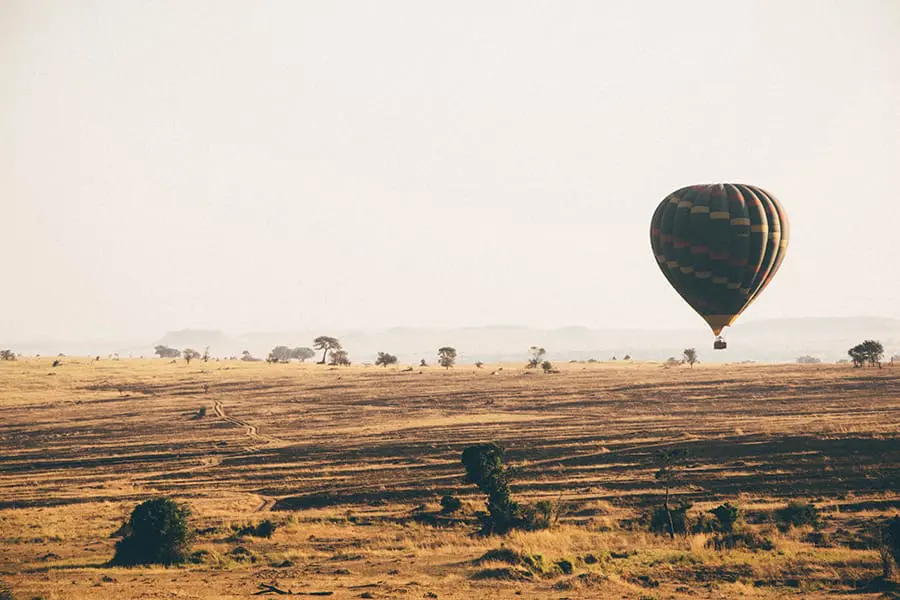
Tanzania is considered travel-friendly and is one of the safest nations on the continent. With nearly 1.5 million visitors in 2022 (an increase of 64% from 2021), Tanzania is one of Africa's most popular safari destinations and is known as a safe country for safari lovers from all over the world to visit.
It's worth noting that when on safari in Tanzania, you'll spend the majority of your time in national parks and private reserves – a far cry from residential areas. When overnighting in more urban areas, like Dar es Salaam or Arusha, there is little reason to worry, especially when taking precautions – such as leaving valuables in the safe in your room and avoiding walking around late at night.
Like with any unfamiliar destination, it's best to practice caution and exercise general safety measures. It's also advised that you read up on the current situation of Tanzania before booking your trip, making sure that you feel comfortable travelling to the country. Fortunately, with an Africa Safari Expert by your side, there's always someone to get expert advice from.
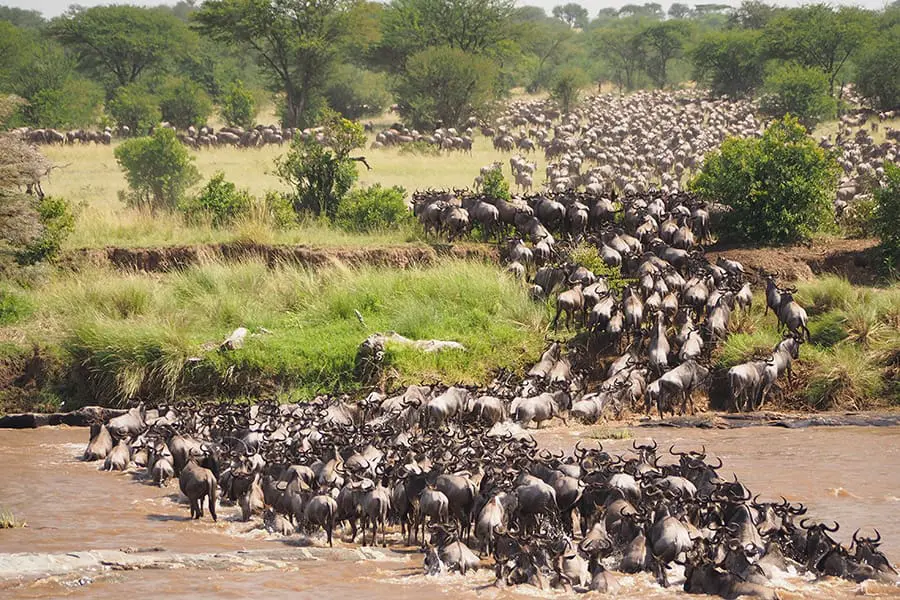
Yes, Tanzania is completely safe for every nationality to visit. The risks commonly associated with travel to Tanzania relate to specific – and strictly non-tourist – areas of the country. It's important to note that any areas you'll be visiting on your safari trip are low-risk areas and very safe to visit.
When on safari in Tanzania, there is a low chance of you having an unsafe experience or incident that puts you in any level of danger. This is especially true when booking through a reputable travel company that has extensive first-hand knowledge and experience regarding travel in Tanzania. Remember, we know because we go!
Any first-time safari-goer is likely to have reservations, but any holiday has a certain amount of risk if you don't know what you're doing. Conducting personal research on the country beforehand and bringing any questions or concerns to your travel advisor, is the best way to gain peace of mind before any trip.
A quick disclaimer: Misinformation is rife and can create unnecessary concern – while it's important to do research, it's easy to be misled. Thousands of travellers visit Tanzania's incredible wildlife areas every year without incident. We advocate for booking with experts who have invaluable, on-the-ground experience.
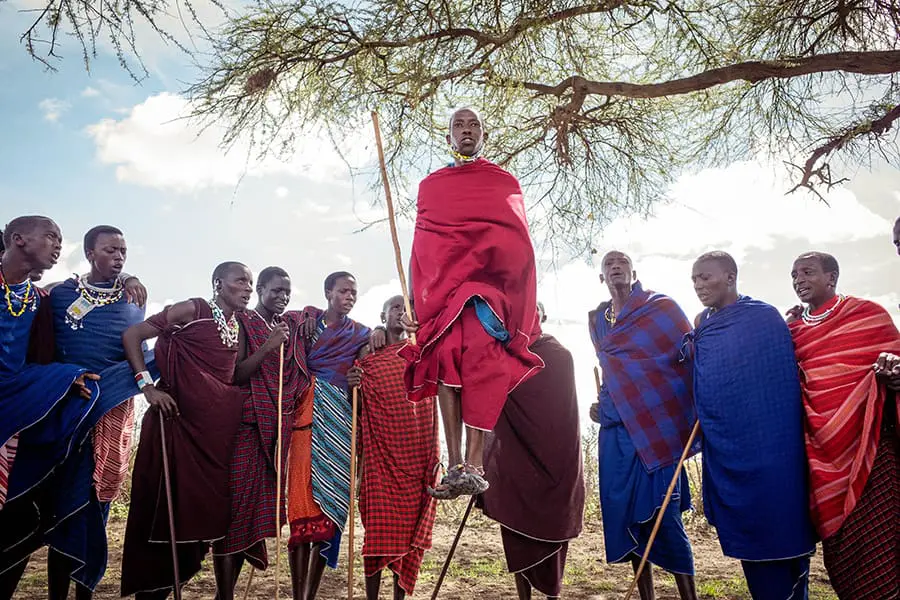
Although tourism hotspots in Tanzania are extremely safe for visitors, it's important to understand what to expect from this East African country. With that in mind, here are a few things to consider before travelling to Tanzania:
Crime
As with any country around the world, petty crime is a reality in Tanzania. When in crowded areas, especially in the bigger cities, opportunists may capitalise on the chance to pickpocket or grab your belongings. Avoid flashing any expensive belongings while in public and to leave valuables in the safe available in your room. When walking around the city, be sure to avoid doing so after dark. Rest assured that this is only applicable in towns or cities and while you're on safari, you need not worry about crime as all guests are treated with the utmost respect.
Border Areas
Contrary to popular belief, Tanzania is not overrun by terrorism. The only risk of terrorist attacks occurs in the far south of the country, along the Mozambican border. Fortunately, all tourist destinations are far removed from the deep south of Tanzania, making it a very low-risk scenario.
Public Transport
It's highly suggested that you avoid making use of public transportation as it's not the safest or most convenient way to get around the city. In the national parks and private reserves, you won't have access to nor the need for public transportation. While on safari, game vehicles and pre-arranged transfers will take you where you need to go.
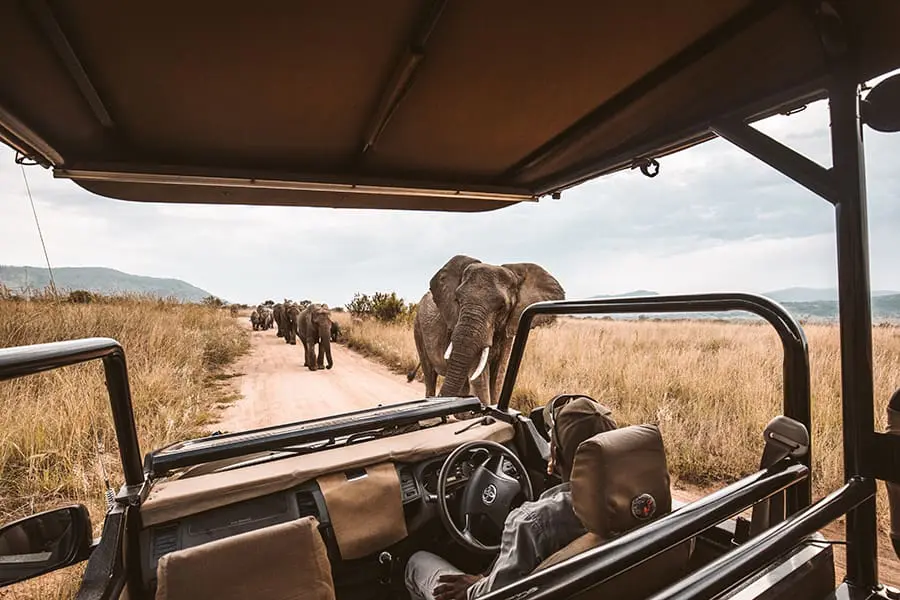
Wildlife
Local wildlife is of no risk when following the local wildlife laws and cautions communicated by rangers and guides. Please ensure you follow the advice and rules of national parks, private reserves, and your professional guides – they are experts who are there to keep you safe. Consult our guide on African safari safety for more information on how safe it is to go on safari in Africa.
Natural Disasters
Tanzania does not experience many natural disasters. The only concern is flooding, as this could affect your trip. Fortunately, the heavy rains tend to happen around the same time every year, and your African Safari Expert can advise you on the best months to travel.
Food & Water
Staying at some of the top lodges and camps in Tanzania means that you can expect quality, delicious food of the highest standard. From local dishes to recognisable Western meals with an African twist, each course has been meticulously planned and prepared, ensuring you're always excited for your next mealtime.
When on the streets of the cities, it's advised to use your discretion about the sanitation and hygiene of local food vendors and restaurants. Trust your gut and avoid places that leave you feeling unsafe.
Visitors are advised not to drink Tanzania's tap water. Fortunately, bottled water is readily available and will be provided in every lodge and camp.
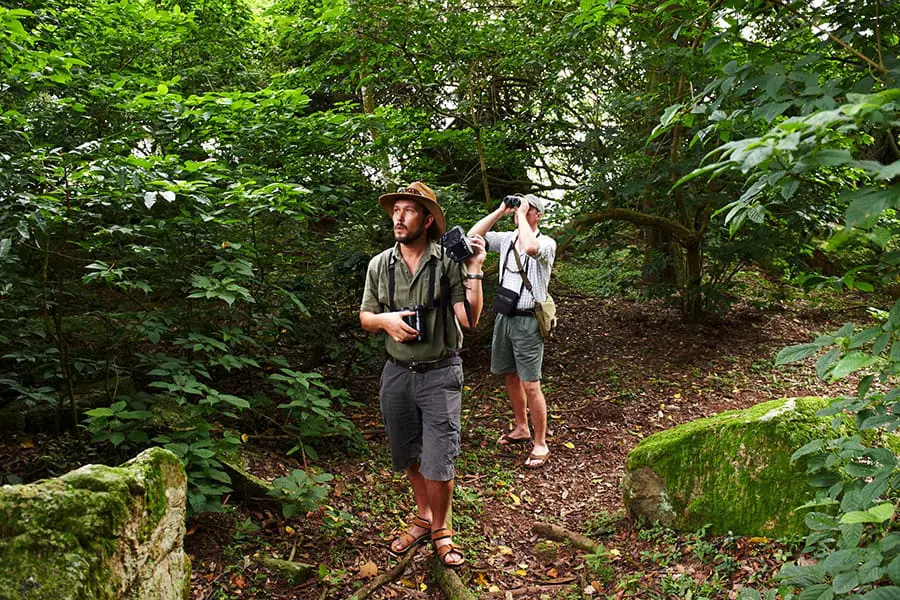
Yes, Tanzania is generally safe for female travellers on safari. Women looking to travel with an all-female group or even solo, can do so without any concerns.
When in the comfort of a national park or private reserve, women can rest assured they are completely safe and will be treated with the utmost respect by all the staff they encounter on their trip.

Despite the anti-gay laws and negative public opinion, LGBTQ+ travellers can enjoy a gay-friendly African safari in Tanzania. However, travelling to East Africa as someone who doesn't identify as cisgender or heterosexual does come with its challenges.
So, is Tanzania safe for LGBTQ travellers? Unfortunately, same-sex relationships are illegal in Tanzania and the general public leans heavily into conservativeness and religion – with the vast majority of residents viewing LGBTQ+ identities as taboo. However, it's not as dire as it sounds. From the wildlife-rich regions of the Serengeti and Ngorongoro Crater to the picture-perfect beaches of Zanzibar, Tanzania has hosted many LGBTQ+ travellers from all corners of the globe.
Tourist areas and accommodations are often gay-friendly and welcoming to LGBTQ+ travellers. As long as you remain discreet and refrain from public displays of affection when around locals or public areas – this goes for heterosexual couples too – you'll have no trouble while in Tanzania.
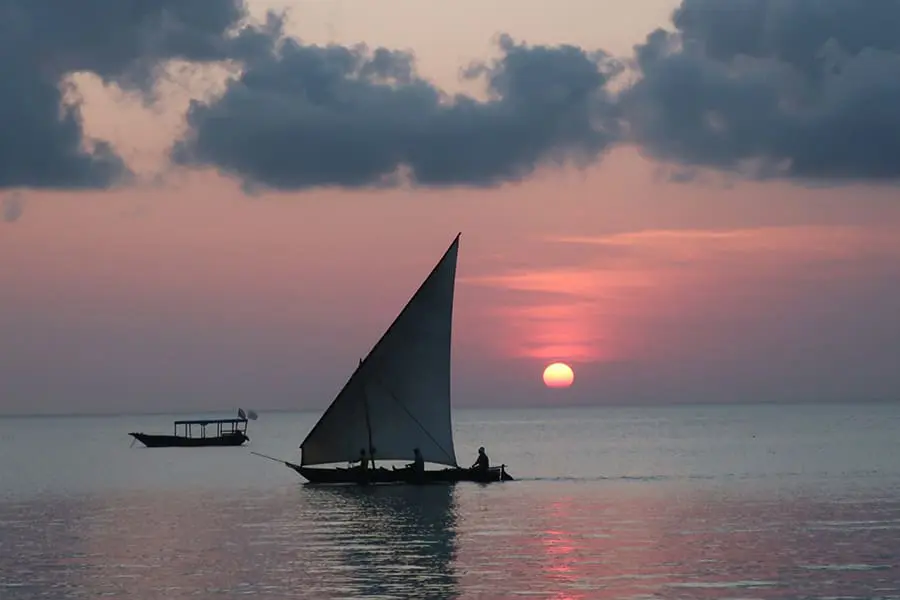
Zanzibar is very safe for travellers from all over the world to visit. The gorgeous, paradisical island offers the best beaches in Tanzania, luxury accommodation, a vibrant historic centre, and a truly relaxing getaway in a temperate climate.
Another commonly asked question is: is Zanzibar safe for female tourists to visit? The idyllic island paradise is popular among solo female travellers and groups of women embarking on a once-in-a-lifetime trip. Zanzibar is generally safe for female travellers, but, as with anywhere else, the typical precautions should be taken for extra peace of mind.
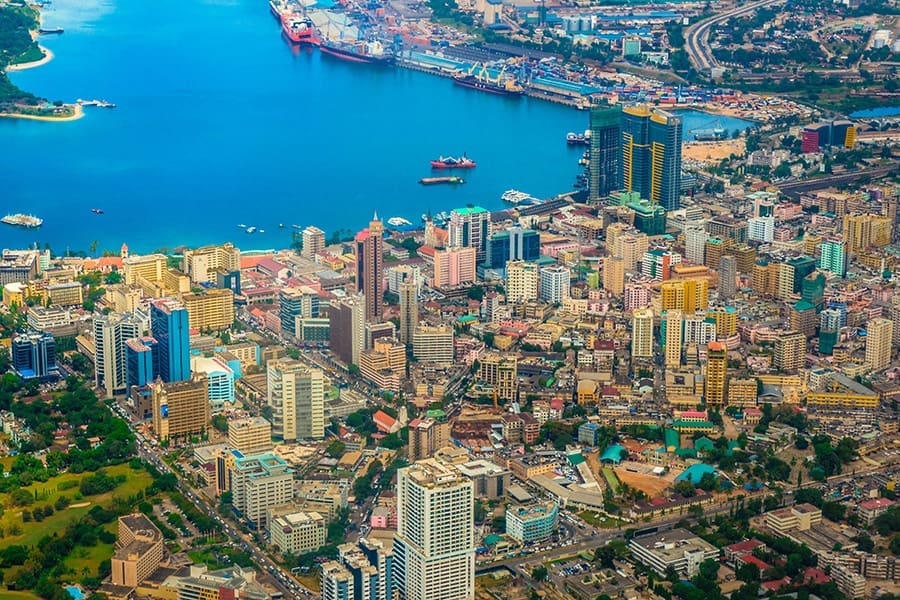
Yes, Dar es Salaam is mostly safe for tourists. In fact, some of the best safaris in Tanzania kick off in Dar es Salaam – long regarded as the gateway to the country's celebrated southern safari circuit. You're unlikely to have any negative experiences in Tanzania's largest city and financial hub, as Dar es Salaam's safety levels are good. As with any major city, there are opportunists in Dar es Salaam who will take the chance to steal or rob you if given the right set of circumstances.
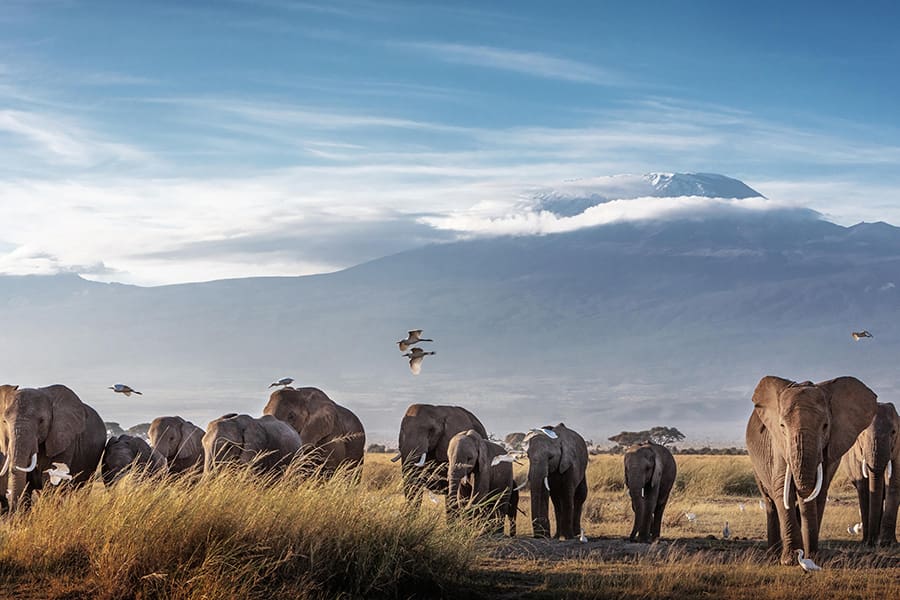
Arusha is another area considered safe for tourists. There are also plenty of things to do in Arusha, from game drives through the national park to serene walks in working coffee plantations, which makes it a popular place to visit. Although a safari in Arusha is safe and you're unlikely to experience any trouble, it's always good to keep precautionary practices in place.
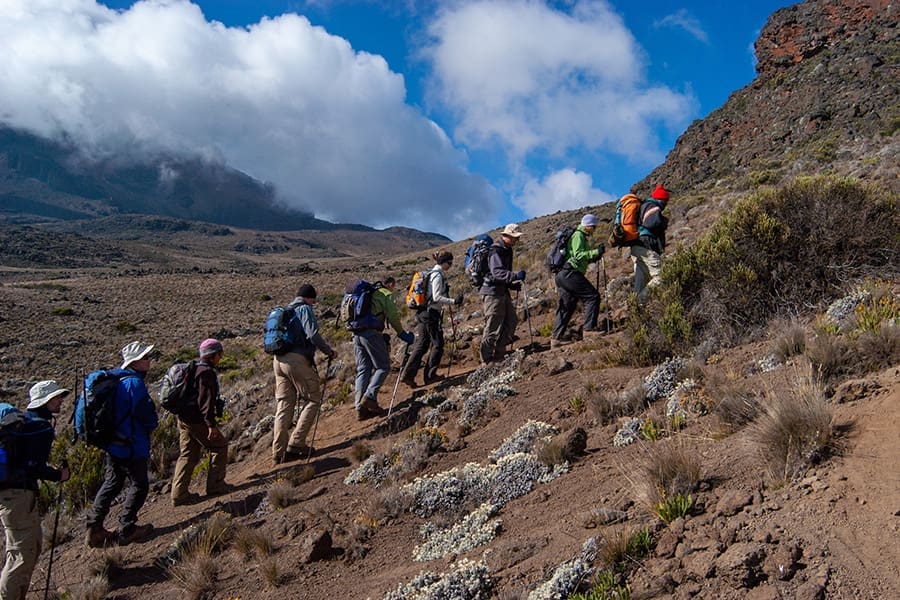
Here are the main points you should keep in mind when deciding to embark on any of the Tanzania tours:
Contact one of our Africa Safari Experts to start planning an epic yet fully safe safari in Tanzania. With over two decades of experience and knowledge, we are professionals in crafting tailor-made itineraries that are sure to be the trip of your dreams.